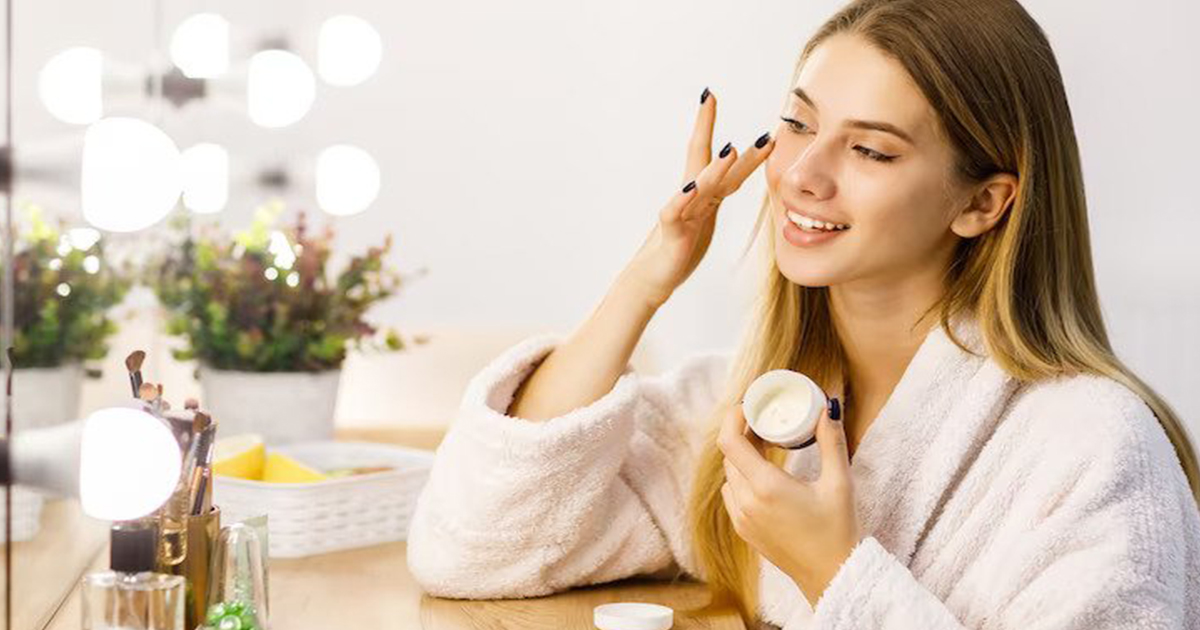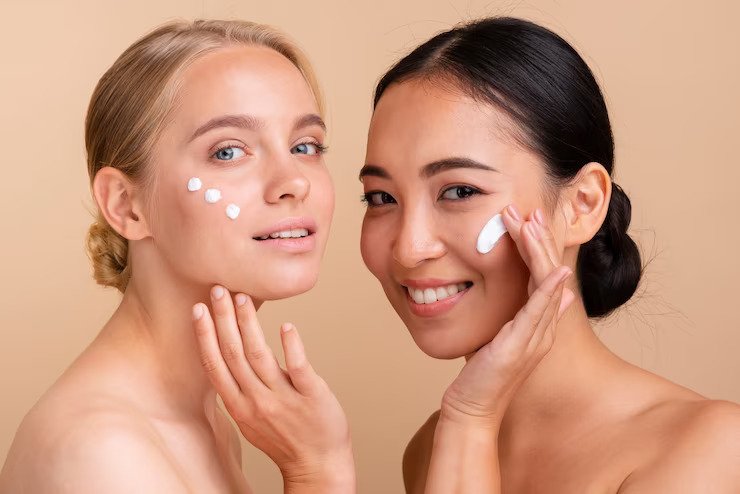Moisturizers are an integral component of any skincare regime as they protect and nourish the skin. Unfortunately, however, some common myths about moisturizers persist; to make sure that you receive optimal care for your skin it’s important that you understand their truth behind these misconceptions. Here are a few myths about moisturizers you should stop believing now.
Moisturizers can often be misunderstood within the beauty and skincare industries. People may believe in unfounded myths about moisturizers that can lead to misleading conclusions. Therefore, it’s vitally important that individuals understand the facts when making decisions for their skincare regime. Below are some common myths surrounding moisturizers which you should stop believing immediately.
Myths About Moisturizers That You Should Stop Believing:-
Myth #1: All Creams Are Basically the Same

Due to the extensive range of moisturizers on offer, there is an often held belief that they all serve a similar function. However, this is far from true as different moisturizers exist for different skin types and selecting an incorrect moisturizer can lead to acne breakouts, irritation or other forms of damage to your complexion.
Some moisturizers contain ingredients that can be too irritating for those with sensitive skin, so it is crucial that you find one suited to your individual skin type. All creams do not work similarly and choosing an unsuitable one could lead to irreparable harm being done to the complexion.
Myth #2: You Should Avoid Moisturizer If You Have Oily Skin

Assumptions that moisturizer is for those with oily skin are incorrect; in fact, even those with oily skin should utilize moisturizer in order to keep it looking youthful and healthy. Moisturizer helps balance out natural oils on your skin and keeps it hydrated.
Moisturizers help prevent your skin from drying out and cracking, which can lead to wrinkles and other signs of aging. Furthermore, moisturizers help reduce inflammation and redness as well as protect it from environmental pollutants – so even if you have oily skin it would be wise to invest in some moisturizer.
Myth #3: Always Apply Moisturizer to Dry Skin

No doubt moisturizers are an essential component of skincare routines, yet some misconceptions must be dispelled about them. One such myth suggests that moisturizers must always be applied when skin is dry – this simply isn’t true as moisturizing damp skin helps lock in more moisture to maintain a hydrating regime and keep skin looking its best!
Instead of waiting until your skin dries after washing your face to apply moisturizer, try doing it immediately while your skin is still damp. This will keep it healthy and soft while applying more than necessary won’t provide any additional benefits; so there’s no point slathering it on! It is also wise to remember that constantly applying moisturizer to dry skin is a myth which should be avoided.
Myth #4: Moisturizers With Sunscreen Provide Sufficient SPF

One of the biggest misconceptions about moisturizers is that they offer adequate sun protection. While some moisturizers contain sunscreen, this alone will not offer adequate coverage against harmful UV rays and cause sunburns. For optimal sun protection, use an SPF 30 sunscreen.
Sunscreen should be applied every few hours for optimal protection, and moisturizers shouldn’t be seen as a means to treat acne; while moisturizers may help reduce its appearance, they’re not designed to do anything more than reduce its presence – for the best results, products specifically geared toward treating and preventing acne should be used instead.
Myth #5: Your Skin Can Become Dependent on Moisturizer

One of the greatest misconceptions about moisturizers is that your skin can become dependent on them. However, this is simply not true as moisturizers serve no such function; their purpose should instead be to keep skin hydrated by replenishing natural oils and lipids essential to maintaining skin health and functioning properly.
Moisturizers can be an integral part of daily skin care routine, providing your skin with much-needed moisture and nourishment. Moisturizers also serve to target specific issues like acne, dryness or wrinkles without becoming addictive; so using moisturizers daily without fear of dependency should be part of your skincare regime.
Myth#6: Expensive Moisturizers Are Always Better

As is often the case, expensive moisturizers aren’t always superior to their cheaper alternatives. There can be numerous factors at play when determining their efficacy; while costlier moisturizers may contain expensive ingredients, they may not necessarily provide hydration and nourishment in equal measures as more budget-friendly moisturizers. In order to find your ideal moisturizer product, research different products until you find something that works for your skin type or budget.
Myth#7: You Only Need To Moisturize At Night

One of the biggest misconceptions about moisturizers is that you only need to use one in the evening; this is simply untrue! Moisturizing throughout the day and night is vitally important in maintaining skin health and hydration levels – without sufficient hydration, your skin could quickly become dry, cracked and susceptible to irritation.
Therefore, it is vitally important to moisturize at least twice each day, both morning and night, to help your skin remain properly hydrated. You might even consider applying a thicker moisturizer before bedtime for optimal skin hydration during sleep.
Myth#8: Not Every Climate Demands Moisturizer

One of the biggest misconceptions about moisturizers is that everyone living in every climate must use one. This isn’t true: in humid environments such as Southeast Asia or Hawaii they may not even need moisturizers at all; those in dry climates may require regular applications of a moisturizer but it may not be necessary in every case; people with naturally oily skin should use caution when applying a moisturizer as this could increase oiliness further.
People with sensitive skin should select moisturizers specifically formulated to address their needs; such products will contain less ingredients that might irritate or cause inflammation. To make sure you choose the appropriate product for you, it is a good idea to consult a dermatologist or skin care professional.
Myth#9: You Can Use The Same Moisturizers For Both Face And Body
One of the biggest misconceptions about moisturizers is that one product can suit both face and body moisturization needs. Unfortunately, this is simply not true as both types of skin require different moisturizers: our face requires lighter moisturizers with ingredients tailored specifically for delicate facial skin; body moisturizers tend to be heavier with ingredients like urea, lactic acid, or glycolic acid that would be too harsh on facial skin.
Another misconception surrounding moisturizers is the belief they provide long-term solutions to dry skin. While moisturizers may temporarily relieve symptoms of dry skin, they do not serve as a permanent fix. While regular usage of moisturizers may help keep skin well hydrated and prevent dryness, they do not serve as a panacea solution; in fact, improper usage could actually worsen conditions further such as clogged pores and breakouts.
Thus, it is vital that you recognize the facts about moisturizers and use them appropriately according to your skin type. By doing this, you can help ensure that your skin remains nourished and hydrated over time.
Also Read:- Natural Ways To Get Rid Of Whiteheads


